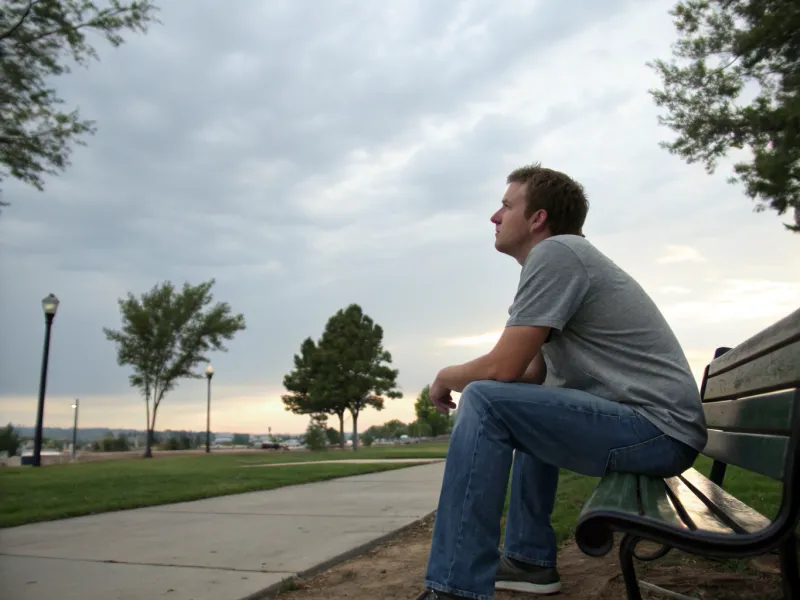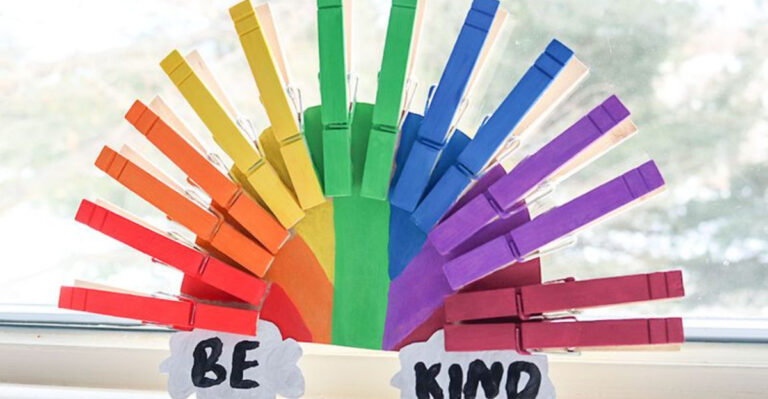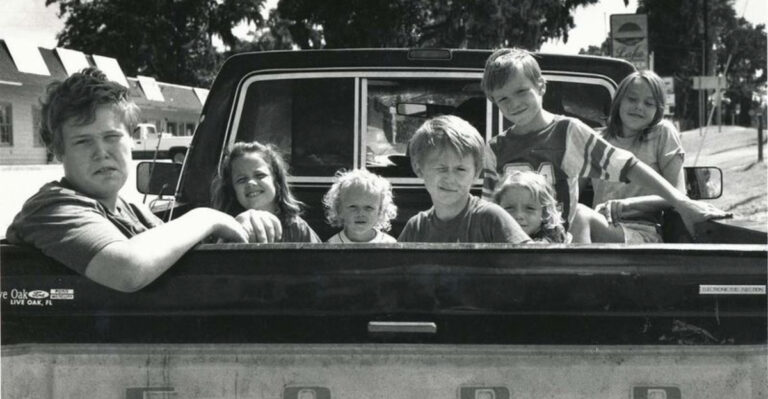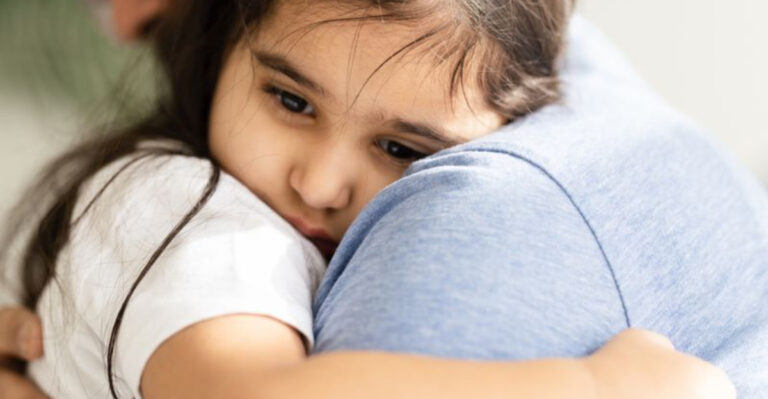38 Quiet Cries For Help From Adult Children That Parents Often Miss
As parents, our instinct is to protect and nurture, but sometimes, the most heartfelt cries for assistance from our adult children are wrapped in silence and subtlety. It’s not uncommon for these cries to go unnoticed, hidden beneath the surface of everyday interactions.
We may miss them, not because we don’t care, but because they’re often whispered through actions rather than words.
Here, I want to share those quiet signals in the hope of opening a pathway for understanding and support. Recognizing these cries can make all the difference in the world, turning moments of misunderstanding into opportunities for connection.
1. Distancing Themselves from Loved Ones

You might notice your child pulling away from gatherings, preferring solitude over the once-loved hum of familial chatter. They might skip family dinners or avoid holiday get-togethers, not out of disdain, but because being around people feels overwhelming. It’s a quiet retreat into a space where they can breathe, away from the questions and expectations that family settings often bring.
This distancing isn’t always a sign of rebellion or anger—it can be a coping mechanism. Imagine the weight of the world on their shoulders, and stepping back is their way of lightening the load, if only for a moment. It becomes a shield against potential judgment or the pressure to present a façade of happiness when internally, they’re struggling.
Acknowledging this behavior with empathy rather than frustration opens doors. A simple, “I noticed you weren’t at dinner; is everything okay?” can be a gentle invitation to talk. Let them know their presence is missed without adding guilt or pressure. It’s about creating a safe harbor where they can dock without fear of being misunderstood.
See also: 25 Things You Should Never Do If You Want Your Adult Kids To Stay Close
2. Avoiding Phone Calls

When your phone rings and their name appears, a sense of anticipation might warm your heart, but their reluctance to answer or call back can speak volumes. This avoidance isn’t always about you; it’s often about them. The act of picking up the phone becomes a mountain too steep to climb amidst whatever internal chaos they’re managing.
For some, it’s the fear of having to explain their absence or confront probing questions. A simple “How are you?” can feel loaded, requiring more than a casual “fine” in response. They might worry about disappointing you or confirming your suspicions that something is amiss.
Instead of assuming disinterest, try reaching out in other ways—a text or a heartfelt note left in their mailbox. These small gestures show that you’re thinking of them without demanding an immediate interaction. It tells them that the line of communication is open, and when they’re ready, you’ll be there, waiting calmly.
3. Struggling to Maintain Responsibilities

The once meticulously organized planner now sits buried beneath a pile of unopened bills and forgotten deadlines. For adult children grappling with mental or emotional challenges, maintaining daily responsibilities feels like an insurmountable task. It’s not laziness or lack of ambition—it’s a silent scream for help.
Imagine waking up each day with a list of tasks that once seemed manageable but now appear as impossible hurdles. The pressure to juggle work, relationships, and personal care creates a storm of stress that leaves them paralyzed.
Offering a hand without judgment can make a significant difference. Acknowledging their efforts and providing support—whether it’s helping sort through mail or just listening—can ease their burden. It’s about showing that you understand their world might be overwhelming and that you’re there to help, not to chastise.
4. Frequent “I’m Fine” Responses

“I’m fine.” Two words that, on the surface, suggest everything is under control. Yet, they often mask a deeper turmoil. It’s the go-to phrase for many who feel like opening up is either futile or burdensome. For adult children, it’s sometimes easier to maintain this facade than to unravel the complex emotions underneath.
When you hear this phrase, consider it a potential red flag rather than a reassurance. It doesn’t necessarily mean they’re lying; it might mean they’re protecting themselves or you from the heaviness they feel.
Approach gently. Instead of pushing for details, express genuine concern by saying something like, “If there’s more to talk about, I’m here.” This opens a door without forcing them through it. It’s about letting them know you’re a safe space, ready to listen whenever they’re prepared to share their truth.
5. Irritability and Sudden Mood Changes

Irritability and sudden mood swings in your adult child can feel like navigating a storm without a map. One moment they’re calm, and the next, an unexpected tide of emotions rolls in. This isn’t about you—it’s often a reflection of their internal struggles, manifesting outwardly.
Understanding that these mood changes can be cries for help rather than acts of defiance is crucial. Life’s pressures—or deeper, unspoken issues—may be boiling beneath the surface, and irritability becomes an inadvertent outlet.
When these changes occur, respond with patience rather than defensiveness. A calm approach can have a grounding effect, offering them a sense of stability in an otherwise turbulent state. Let them know you’re there to support and understand, not to judge or retaliate.
6. Sudden Changes in Habits or Appearance

A drastic haircut, a new wardrobe, or a sudden shift in lifestyle choices might seem like a pursuit of self-reinvention. However, these changes can sometimes signal an internal cry for help. It’s less about fashion or trend, and more about expressing something that words can’t quite capture.
This transformation can be a way to regain control when other aspects of life feel chaotic. Altering one’s appearance or habits can provide a sense of agency and new identity when they feel lost.
Instead of critiquing these changes, engage with curiosity and care. Ask what inspired the new look or routine. Show them you’re interested in their world, and you might uncover feelings and thoughts they’re struggling to voice. Your interest can reassure them that change is okay, and they’re loved regardless of external transformations.
7. Withdrawing Emotionally

Emotional withdrawal is akin to watching a turtle retreat into its shell. What once was an open book becomes a closed chapter, leaving you wondering where the connection went. This retreat isn’t meant to exclude you; it’s often a protective measure against vulnerability.
For adult children, sharing emotions can feel perilous. Past experiences might have taught them that opening up leads to disappointment or misunderstanding. They retreat not due to a lack of trust in you, but as a safeguard for their own heart.
Instead of demanding they open up, offer them space and time. Let them know that your love and support are constants, ready to meet them whenever they’re prepared to emerge. It’s about building an atmosphere where they feel secure enough to eventually share what’s inside.
8. Financial Instability

Financial instability is a stressor that can affect anyone, but for your adult child, it might be a silent signal that they’re struggling. They might be too proud or ashamed to ask for help, fearing judgment or disappointment.
This instability may stem from job loss, mounting debts, or unforeseen expenses. Watching them balance these burdens can be heart-wrenching, knowing they’re trying to maintain independence without seeking assistance.
Approach the topic with sensitivity. Offer guidance or resources without making them feel inadequate. Perhaps share your own financial struggles from the past, showing that it’s okay to need support sometimes. It’s about offering a lifeline, not a lecture, helping them navigate these challenging waters without feeling alone.
See also: 27 Surprising (And Slightly Alarming) Reasons Some Young Adults Still Live Off Their Parents’ Money
9. Declining Mental Health

Mental health challenges often manifest quietly, lurking beneath the surface while your child tries to maintain a semblance of normalcy. Changes in sleep patterns, appetite, or energy levels might be the only visible signs.
Your child might not know how to articulate their feelings or fear the stigma associated with mental health issues. As a result, they suffer in silence, hoping the storm will pass.
Recognize these subtle indicators and approach with compassionate curiosity. Encourage conversations about mental well-being and offer professional support without pressure. It’s about normalizing these discussions, showing that seeking help is a strength, not a weakness.
10. Loss of Interest in Hobbies

The hobbies that once sparked joy and passion now gather dust, forgotten in the corners of their life. When your adult child loses interest in activities they once loved, it might signal that they’re battling something internally.
This loss of interest often indicates a struggle with motivation or energy, common symptoms of depression or anxiety. The joy they once felt has been overshadowed by other pressing emotional battles.
Gently inquire about their hobbies without pressure to resume them. Show genuine interest in their feelings about these activities. Sometimes, just knowing someone else cares can reignite a spark. Encourage small steps—perhaps trying the hobby together—and let them know it’s okay to start small or explore new interests.
11. Frequent Complaints of Fatigue

Fatigue that lingers and seeps into daily life might seem like a mundane complaint, but for your adult child, it can be a significant indicator of underlying issues. This exhaustion could stem from stress, anxiety, or even health problems that they’re not fully aware of.
When they express constant tiredness, it’s not just physical fatigue; it’s emotional and mental weariness. They may feel overwhelmed by life’s demands and lack the energy to tackle them.
Address this fatigue with empathy and concern. Encourage them to explore potential causes, perhaps suggesting a visit to a healthcare provider. Show them that you understand fatigue isn’t just about needing more sleep, but about finding balance and ensuring their well-being.
12. Increased Sensitivity to Criticism

Criticism, even when constructive, can hit like a cold wind, piercing and unwelcome. Your adult child might react to feedback with heightened sensitivity, a reflex that signals deeper insecurities or past hurts.
This sensitivity often isn’t about the criticism itself but what it represents—a fear of failure or not meeting expectations. It’s a reminder of struggles they’re facing internally, unsure if they’re good enough.
Approach with kindness and careful language. Affirm their strengths before offering guidance. Create a dialogue that feels like a safe space rather than a judgment zone. By showing you’re on their side, you help foster resilience rather than defensiveness.
13. Overwhelmed by Small Tasks

When a once simple task feels like climbing Everest, your adult child might be crying out for help in silence. The overwhelm stems not from the task itself but from the cumulative weight of responsibilities they’re struggling to manage.
This feeling of being overwhelmed is a sign that they’re close to their breaking point, juggling too much, and unsure where to begin untangling the chaos.
Offer support by helping them break down tasks into manageable steps. Sometimes, lending a hand with a simple chore can create a ripple effect, turning a mountain back into a molehill. Be there, not to take over, but to stand alongside as they regain their footing.
14. Avoiding Social Interactions

The choice to avoid social gatherings or interactions isn’t always a sign of introversion—it might be a retreat from anxiety or depression. For your adult child, the idea of socializing can feel overwhelming and exhausting.
This avoidance becomes a shield against potential judgment or the effort of maintaining appearances when they’re struggling inside.
Recognize their need for space while gently encouraging social connections that feel safe and comforting. Suggest smaller, less intimidating interactions, or offer to accompany them. It’s about acknowledging that social energy is finite and respecting their need to recharge without isolation.
15. Uncharacteristic Risk-Taking

Engaging in behaviors that seem out of character or risky can be a cry for help masked as a quest for excitement or escape. For your adult child, these actions might serve as a distraction from internal turmoil or a way to feel alive amidst emotional numbness.
This risk-taking isn’t necessarily about rebellion but about searching for something that feels real and tangible when everything else seems uncertain.
Approach with understanding rather than alarm. Open a conversation about what they’re experiencing, showing curiosity about their motivations. By discussing their feelings and fears, you can help them find healthier ways to seek fulfillment and excitement.
16. Neglecting Personal Hygiene

Personal hygiene might seem basic, but neglecting it can be a profound signal of distress. For your adult child, letting go of these routines might indicate a struggle with depression or a lack of self-worth.
This neglect isn’t about laziness but rather a symptom of feeling overwhelmed by life’s demands. As the weight of emotional challenges grows, personal care can become an afterthought.
Handle the topic delicately, with empathy and support. Offer to help them ease back into a routine, perhaps by suggesting activities that make self-care feel accessible and rewarding. It’s about reinforcing their value and showing that you’re there to support them in regaining control over their well-being.
17. Increased Use of Alcohol or Substances

Turning to alcohol or substances can be a quiet cry for help, a way for your adult child to numb pain or escape from reality. This isn’t about indulgence; it’s often about masking something deeper that they’re struggling to articulate.
These substances provide temporary relief, creating an illusion of peace or control in their chaotic world. However, this escape can quickly spiral into dependency, further complicating their struggles.
Address the issue with compassion rather than judgment. Encourage open dialogue about what they’re going through, and offer support in finding professional help. It’s about showing concern for their health and well-being without alienating them.
18. Frequent Mention of Feeling Overwhelmed

When “overwhelmed” becomes a common refrain in their conversations, it’s a signal that life’s pressures are mounting. For your adult child, this feeling might pervade every aspect of their existence, leaving them unsure where to turn.
This sense of overwhelm is often a reflection of juggling too many responsibilities without enough support or resources. They may feel like they’re drowning, unsure of how to keep afloat.
Approach with empathy, offering a listening ear and a helping hand. Discuss ways to manage stress, whether through prioritization, professional guidance, or simply sharing the load. Let them know they’re not alone in navigating life’s complexities.
19. Changes in Eating Habits

Eating habits can be a window into our emotional state. For your adult child, drastic changes—whether it’s loss of appetite or overeating—might signal deeper issues. These shifts often reflect attempts to regain control or cope with stress.
When food becomes a source of comfort or avoidance, it’s a sign that something internally is unsettled. They might not even recognize this connection themselves.
Approach the topic gently, expressing concern without judgment. Encourage open conversations about how they’re feeling and offer support in finding healthier coping mechanisms. It’s about understanding that food can be both a comfort and a challenge, and you’re there to help them find balance.
20. Inconsistent Work Performance

Inconsistent work performance can be a reflection of internal struggles your adult child is facing. It’s not about a lack of effort, but rather an indication that something deeper is at play.
When focus and motivation wane, it might be because they’re dealing with emotional or mental health challenges. The stress of maintaining a façade at work while battling these issues privately can be overwhelming.
Offer support by discussing what they’re experiencing, showing that you’re available to help find solutions. Whether it’s professional guidance or simply a listening ear, your involvement can provide a foundation of stability as they navigate their work-life challenges.
21. Frequent Complaints of Isolation

Isolation can feel like a heavy cloak, wrapping your adult child in solitude even when they’re surrounded by others. Their frequent mentions of loneliness or feeling disconnected might be quiet cries for help.
This isolation isn’t always a choice; it can result from anxiety, depression, or a feeling of not fitting in. They might struggle to reach out, fearing rejection or misunderstanding.
Recognize these feelings and create a bridge of connection. Encourage activities that foster community and belonging, or simply spend time with them in ways that feel meaningful. Show them that they’re not alone, and that connection is always within reach.
22. Avoiding Eye Contact

Avoiding eye contact might seem trivial, but it can be a significant indicator of discomfort or distress. For your adult child, it’s a subtle signal that they’re grappling with emotions they’re not ready to share.
This avoidance often reflects a lack of confidence or fear of vulnerability. Making eye contact feels too raw, too revealing, so they look away.
Instead of insisting on eye contact, focus on creating a comfortable environment where they feel safe. Let them know that they can share at their own pace and that you’re there to listen. It’s about building trust and understanding, allowing them to open up when they’re ready.
23. Changes in Sleep Patterns

Sleep patterns offer a glimpse into our mental and emotional health. For your adult child, disruptions in sleep—whether insomnia or excessive sleeping—can be a sign of underlying issues.
These changes might indicate stress, anxiety, or depression. The mind races when it should rest, or fatigue drags them into prolonged slumber as a form of escape.
Gently encourage conversations about these changes without pressure. Suggest professional support if needed, and explore relaxation techniques together. It’s about addressing the root causes and showing that you care about their overall well-being.
24. Neglecting Personal Goals

Personal goals often drive us forward, but when your adult child begins neglecting them, it might signal deeper concerns. The dreams and ambitions they once chased with vigor now sit idle, gathering dust.
This neglect isn’t about giving up; it’s often about feeling overwhelmed or uncertain about the future. Life’s pressures can overshadow personal aspirations, creating a feeling of stagnation.
Approach this topic with encouragement, not pressure. Discuss their goals and offer support in reigniting their passion. Whether it’s through small actionable steps or simply listening, your involvement can help them reclaim their dreams and find direction.
25. Frequent Apologies

Apologies can sometimes flow too freely, becoming a signal of deeper insecurities or feelings of inadequacy. Your adult child’s frequent apologies might stem from a fear of disappointing others or a lack of self-worth.
These apologies aren’t about actual wrongdoing but about seeking validation and acceptance. It’s a quiet plea for reassurance that they’re enough, just as they are.
Address this behavior with warmth and positivity. Reinforce their value and strengths, showing them they’re appreciated without conditions. By fostering a supportive environment, you help them build confidence and reduce the need for constant atonement.
26. Constantly Busy but Unproductive

The hustle of life can sometimes mask a deeper cry for help. Your adult child might seem perpetually busy, yet their productivity doesn’t match the effort. This constant motion without progress can indicate an underlying struggle.
This busyness becomes a distraction from confronting internal issues, providing a sense of purpose even when it doesn’t yield results. It’s a way to mask feelings of inadequacy or uncertainty.
Engage them in conversations about their workload and priorities. Offer guidance in finding balance and encourage moments of reflection. It’s about helping them recognize that true productivity isn’t about doing more, but about doing what matters.
27. Feeling Trapped in Current Situation

Feeling trapped in life’s circumstances is a significant cry for help, even if it’s expressed quietly. Your adult child might feel stuck in their job, relationship, or living situation, unsure how to break free.
This feeling of entrapment stems from fear of change or the unknown. The comfort of the familiar, even when unsatisfying, can outweigh the risk of pursuing something different.
Talk openly about their feelings and options. Encourage exploration of new possibilities, offering support in planning and decision-making. It’s about showing that change is achievable and that they have your backing as they navigate their path.
28. Dwelling on Past Mistakes

The past can cast long shadows, and dwelling on mistakes is a common yet overlooked cry for help. Your adult child might often revisit past failures, unable to release the grip of regret.
This dwelling isn’t about nostalgia; it’s about being unable to forgive themselves, feeling trapped in a cycle of self-blame and what-ifs.
Encourage discussions about the past, focusing on lessons learned rather than mistakes made. Show them that growth comes from experience, and that moving forward is possible. By helping them reframe their narrative, you provide a pathway to healing and self-acceptance.
29. Unexplained Aches and Pains

Unexplained aches and pains can serve as physical manifestations of emotional distress. Your adult child might experience these bodily symptoms without a clear medical cause, leaving them perplexed and frustrated.
These symptoms often arise from stress or anxiety, signaling that something deeper is amiss. The body speaks when the mind can’t find the words.
Approach with empathy, suggesting medical consultation while also exploring emotional well-being. Encourage them to share their experiences and feelings, offering support in finding holistic solutions. It’s about acknowledging the connection between mind and body, and helping them find balance.
30. Expressing Hopelessness or Despair

Expressions of hopelessness or despair are among the most poignant cries for help. When your adult child voices feelings of giving up or seeing no way forward, it’s a signal that they’re in deep distress.
These expressions often stem from depression or a profound sense of being overwhelmed by life’s challenges. It’s a plea for understanding, support, and intervention.
Take these expressions seriously, creating an open dialogue about their feelings. Encourage professional support and reassure them that they’re not alone. Your presence and willingness to understand their pain can provide a lifeline in their darkest moments.
31. Sudden Lack of Motivation

Motivation can ebb and flow, but a sudden and persistent lack of motivation in your adult child might be a signal of deeper issues. When they once pursued life with vigor and now struggle to find purpose, it’s a quiet cry for help.
This lack of motivation isn’t about laziness; it’s often linked to emotional or mental health struggles that sap their energy and enthusiasm.
Approach with understanding, discussing what they’re going through and offering support in finding their spark again. Whether it’s small steps or professional guidance, your encouragement can help them rediscover their drive and passion.
32. Engaging in Self-Destructive Behaviors

Self-destructive behaviors can be silent cries for help, reflecting inner turmoil and a struggle to cope with life’s challenges. Your adult child might engage in habits that harm rather than heal, signaling a need for deeper understanding and support.
These behaviors aren’t about seeking attention—they’re often about managing pain or expressing feelings they can’t articulate.
Address these behaviors with compassion, encouraging open conversations about what they’re experiencing. Offer support in finding healthier coping mechanisms and professional help if needed. It’s about creating a space where they feel seen and understood, guiding them towards healing and self-care.
33. Suddenly Becoming Overly Agreeable

When your adult child starts agreeing with everything you say—never challenging ideas or expressing personal opinions—it might feel like peace, but it could be a red flag. This sudden agreeableness can stem from emotional exhaustion or a fear of conflict, signaling they no longer feel safe enough to be authentic.
Agreeing to keep the peace can be a form of self-protection. If they’ve faced judgment or emotional pushback in the past, staying silent or compliant becomes the path of least resistance. But underneath the nods and smiles, they may be suppressing pain or resentment.
Watch for changes in how freely they share themselves. Create space for honest expression without fear of criticism. Gently encourage them to speak their truth, even if it differs from your own. Real connection grows not from agreement but from authenticity.
34. Giving Generic Life Updates

When life updates from your adult child shift from heartfelt to hollow—”Everything’s good,” “Just keeping busy,”—it’s easy to assume things are fine. But these vague, noncommittal responses can be their way of avoiding vulnerability or hiding emotional overwhelm.
Generic updates often signal that deeper struggles lie beneath the surface. They might feel unsure how to open up, or worry that sharing the messy details will invite judgment instead of support.
Instead of accepting surface-level answers, gently press with warmth and curiosity: “What’s been on your mind lately?” or “Anything been weighing on you?” These simple invitations let them know they don’t have to carry their burdens alone—and that you’re ready to truly listen.
35. Over-Apologizing for Small Things

When your adult child repeatedly apologizes for the tiniest inconveniences—being late by five minutes, declining an invitation, or forgetting to text back—it may seem like they’re just being polite. But frequent, excessive apologies often reveal a deeper sense of unworthiness or fear of being a burden.
This behavior can point to underlying anxiety, low self-esteem, or emotional wounds from the past. It’s as if they’re constantly bracing for disappointment or rejection, even when none exists.
Rather than brushing it off with “It’s fine,” take the opportunity to reassure them: “You never have to apologize for being human.” Remind them that love isn’t conditional and they don’t have to earn your patience or presence. Sometimes, what they need most is permission to just be.
36. Constantly Shifting the Conversation Away from Themselves

If your adult child always redirects the conversation when it turns toward their own life—quickly asking about you instead—it might be a sign they’re not ready to share what’s really going on. It’s not just humility; it can be a quiet deflection rooted in pain, fear, or overwhelm.
This conversational dodge is often used to avoid vulnerability. They may feel that their struggles aren’t worth mentioning, or that bringing them up would disrupt the relationship dynamic.
Instead of forcing the topic, create a space of gentle persistence and emotional safety. Try saying, “I noticed you always ask about me—how are you really doing lately?” A soft invitation to be seen can make all the difference. It’s not about prying—it’s about showing you’re ready when they are.
37. Frequent Nostalgia About Childhood

Do you often hear them reminiscing about the ‘good old days’? Frequent nostalgia about childhood can be more than just a trip down memory lane. It may signal a longing for comfort and security from simpler times.
As they recount tales of their youth, they might be seeking the emotional warmth and reassurance they feel is missing in their current life. Sharing these memories can be a gentle cry for connection, a subtle plea for the listening ear and understanding heart of their parents.
Encouraging open conversations about their feelings can unveil deeper emotional needs.
38. Increased Interest in Alone Time

When solitude becomes a frequent choice, it might be more than just a preference for peace. Increased interest in spending time alone can indicate an underlying struggle with social pressure or anxiety.
Finding solace in solitude might reflect an attempt to recharge or escape from overwhelming life situations. While some alone time is healthy, a noticeable increase might be a quiet call for help.
Encouraging your child to share their thoughts about why they seek solitude can help uncover if they need support in managing stress or anxieties they’re facing.







